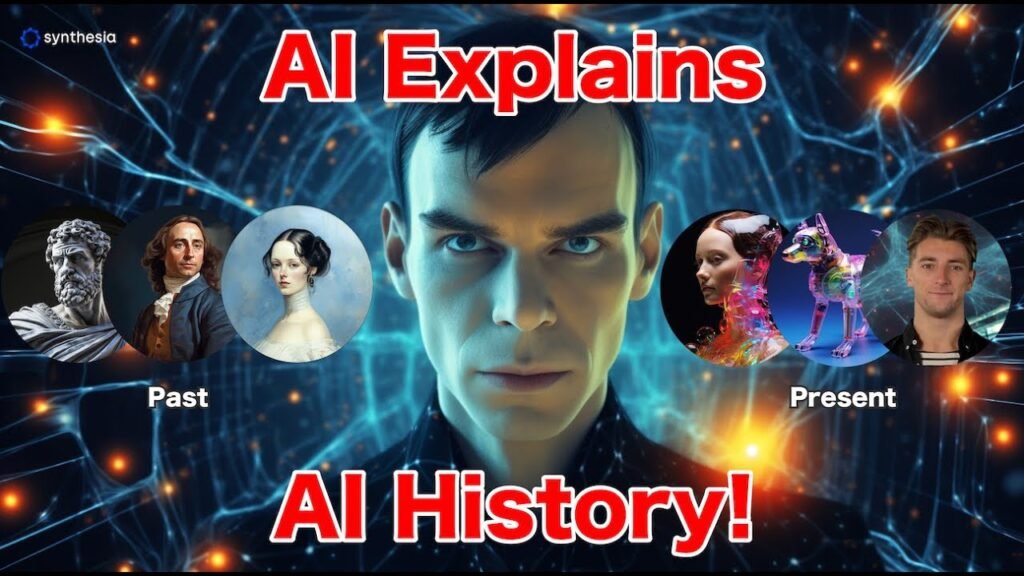Artificial intelligence (AI) is shaping our present and defining the future. But what if you want to make AI history—to be remembered as someone who contributed to the rise of this technology? Whether you’re a student, a hobbyist, or an entrepreneur, leaving your mark in AI doesn’t require superhuman genius. It takes curiosity, persistence, and the right roadmap.
This article breaks down how you can make your own mark in AI, plus answers to common questions beginners often ask.
1. Learn the Foundations
To contribute to AI in a meaningful way, start by building a strong base. You don’t need a PhD to get started. Focus on:
- Mathematics: Linear algebra, probability, and statistics.
- Programming: Python is the most widely used language in AI.
- AI concepts: Machine learning, natural language processing, and neural networks.
Free platforms like Khan Academy, Coursera, and YouTube can help you cover the basics without spending a dime.
2. Start Building Projects
History isn’t written in theory—it’s written in action. Once you understand the basics, start experimenting. Some beginner-friendly projects include:
- Chatbots
- Image recognition apps
- AI-powered games
- Recommendation systems
Each project you finish adds to your portfolio and teaches you practical lessons you’ll never learn from books alone.
3. Contribute to Open Source
Want to be remembered in the AI space? Join open-source projects. Contributing code, documentation, or ideas to communities like TensorFlow, PyTorch, or Hugging Face puts your work in front of thousands of developers worldwide.
This is how many innovators make their names known. Even small contributions can ripple through the field.
4. Stay Ahead with Research
AI moves fast. What was groundbreaking last year may feel outdated today. To keep up:
- Follow research papers on arXiv.org.
- Subscribe to AI newsletters.
- Join online forums like Reddit’s r/MachineLearning or AI Stack Exchange.
Reading and sharing new research helps you understand cutting-edge tools and might even inspire you to publish your own work one day.
5. Focus on Impact, Not Just Tech
AI history isn’t only about algorithms—it’s about the problems they solve. Some of the biggest breakthroughs have come from applying AI to pressing global challenges:
- Healthcare (diagnostics, drug discovery)
- Climate (predicting weather patterns, optimizing energy use)
- Education (personalized learning tools)
Think about where your skills can make a difference. If your AI solution improves lives, that’s the kind of history that lasts.
6. Build a Personal Brand
It’s not enough to do great work—you need to share it. Document your journey online:
- Write blogs about your projects.
- Share tutorials on YouTube or LinkedIn.
- Speak at meetups or conferences.
The more visible your work, the more likely it is to inspire others. And inspiration is a huge part of making history.
7. Collaborate and Network
No one makes AI history alone. Join communities, hackathons, and research groups. Collaborating with others not only sharpens your skills but also expands your opportunities. Many breakthroughs in AI have been team efforts.
FAQs About Making AI History
Q1. Do I need a degree to make an impact in AI?
Not necessarily. While degrees help, many successful AI innovators are self-taught. What matters is your ability to solve real problems and share your work.
Q2. How long will it take to get started?
With consistent effort, you can build small AI projects within 3–6 months. Becoming an expert takes years, but you don’t need to be an expert to start making contributions.
Q3. Can I make AI history without coding?
Yes. Designers, ethicists, educators, and entrepreneurs all shape AI’s impact. If coding isn’t your strength, you can still influence how AI is built and applied.
Q4. What tools should beginners use?
Start with Python, TensorFlow, PyTorch, and Jupyter Notebooks. They’re beginner-friendly and widely supported.
Q5. How can I publish my work?
Use GitHub for projects, Medium or Substack for articles, and YouTube for tutorials. If you’re working on research, aim to publish on arXiv or in peer-reviewed journals.
Final Thoughts
Making AI history doesn’t mean inventing the next ChatGPT overnight. It means learning, building, sharing, and solving problems in ways that matter. Each project you create, each idea you share, and each person you inspire brings you closer to leaving your mark.
AI history is being written right now. The question is—what role will you play in it


